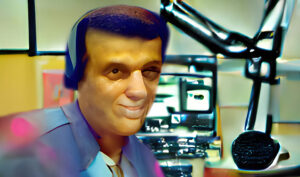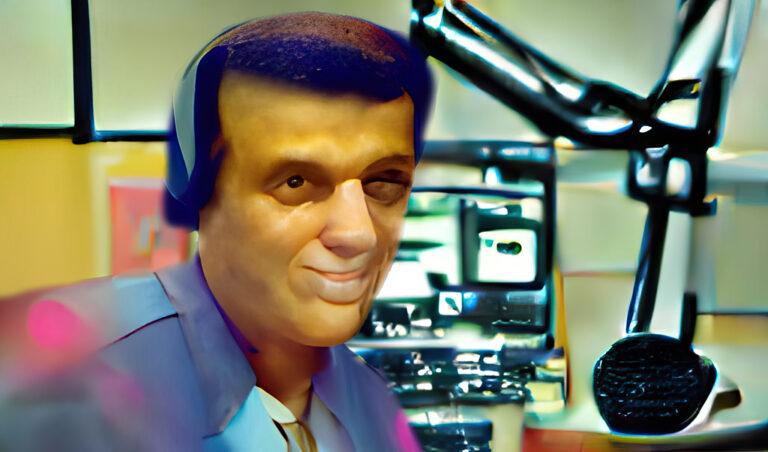A couple of years before Moonbase Alpha, there was Moonbase 3 – the BBC’s attempt to mine the sci-fi genre for more “grown-up” stories.
News flash: the producers behind Doctor Who are going to launch their own original science fiction series, and they’re going to try to tell more nuanced, adult stories, and the show will launch between seasons of Doctor Who!
So, this is about Torchwood, right? Not quite. That news flash was equally applicable to 1973, as Doctor Who producer Barry Letts and script editor Terrance Dicks prepared to launch their own side project on BBC1, Moonbase 3. The BBC had approached them, on the basis of their success with the Jon Pertwee era of Doctor Who (and on the basis of their transforming that show into something that tackled real world issues through a sci-fi lens), with the opportunity to explore the genre in a way that wouldn’t fit in Doctor Who’s more consciously kid-friendly format.
Unlike Torchwood, however, Moonbase 3 was not set in the Doctor Who universe (though technically, there really isn’t anything that explicitly rules that out either – there you go, fanfic writers, the starting gun has fired). It was set in the year 2003, which was far enough in the future from 1973 that surely we would have moonbases – you know, on the moon! – as well as travel to and from the moon that’s close enough to routine that people on those moonbases are no longer too concerned about day-to-day survival and are relaxed enough to fret over things like their career trajectories.
Moonbase 3 is run by Europe (Moonbases 1 and 2 are, respectively, operated by the United States and Russia), with characters representing several European countries. Their British administrator is tragically killed in an accident involving a routine rocket flight to Earth and an overworked, stressed-out pilot who shouldn’t have been in the flight rotation to begin with. Thus begins the search for a new chief administrator of Moonbase 3, and the controversial choice of Welshman David Caulder (Donald Houston) doesn’t sit well with those on Moonbase 3 – especially Frenchman Michel Lebrun (Ralph Bates), who hoped to get the promotion to that office himself.

Once Caulder is in the office, however, he orchestrates a jarring demonstration of what happened that led to his predecessor’s demise: the Moonbase’s highest-ranking officers have become so complacent that they don’t actually care about their jobs anymore, and as such didn’t flag down the late pilot for his readily observable behavior before it got him (and his boss) killed. By deliberately engineering a situation in which those same high-ranking officers have to rely on one another to survive, Caulder forces them to care…and then leave it up to them if they’re going to stay in their jobs and give a damn this time, or go back to Earth in disgrace. Lebrun, head astronaut Tom Hill (Barry Lowe), and Moonbase 3 counselor Helen Smith (Fiona Gaunt), believing their lives are in danger, do proceed to care… and even once the ruse is revealed, they now know their new boss means business. (Helen Smith, by the way, might just be the first series-regular sci-fi TV space shrink in the history of the genre, 14 years before Star Trek: The Next Generation’s Counselor Troi.)
And that’s just the pilot. The five episodes that follow continue exploring the pressure-cooker environment of being stuck in close, enclosed quarters with the same people, day-in and day-out, in a place that’s still so far away that they can’t just go home. A potential major scientific discovery starts a rumor that picks up steam – as well as amendments that were as incorrect as the original rumor – as it works its way through all of the moonbase’s personnel. A debate begins over whether or not Moonbase 3’s science division needs to produce results that could potentially generate revenue. An international space mission goes awry, ratcheting up tensions between the various nations who have bases on the moon.

In the final episode, because you want to end the season on a feel-good note, an experiment conducted in Earth’s upper atmosphere causes the atmosphere to go completely opaque, cutting off communications and leading those on Moonbase 3 to believe that all life on that planet has been wiped out, leading to a breakdown of discipline and morale so severe that Caulder considers venting Moonbase 3’s atmosphere into space slowly, which would euthanize the entire crew gently since no further supplies will be coming from Earth and they may all be doomed anyway as a result. To put it politely, the tone of Moonbase 3 is grim – perhaps too grim for the already bleak early 1970s, which saw the western world grappling with energy shortages and other sources of international tension.
Terrance Dicks, especially, realized that this was a failing of the show; neither he now Letts were necessarily surprised when the BBC declined to extend the life span of the series beyond its six-episode first season. But the two did make note of what did work: numerous cast members, as well as some of the more interestingly futuristic-looking bits of the show’s sets, would crop up in the next season of Doctor Who (which was also the last for Letts and Dicks before they, too, moved on to make way for the production crew that would take over the show along with Tom Baker).

Moonbase 3 was actually a very early example of an international co-production; the above-average-for-1973 model work was made possible by a financial infusion from 20th Century Fox, who in turn was granted the rights to sell the show to an American network (in this case ABC, which aired the series in a quickly-forgotten late-night slot). It’s that unlikely international connection that made it possible to release the series on DVD in the real 21st century: the BBC did not retain the original tapes of Moonbase 3, and the show was generally considered “lost” until copies converted to the NTSC video system were found in the vaults in the U.S., suddenly making the entire series a thing that could be viewed and released again. (Terrance Dicks’ memories of Moonbase 3 were obviously fond, as it’s often said that his reaction, upon being informed that Moonbase 3 could be back in circulation again, was to blurt “oh sh*t!”)
In hindsight, the bleakness of the show really does work against it; Moonbase 3 is better in small doses, as a binge-watch would probably bring on existential despair. (Interestingly, the sometimes-equally-dreary Harlan Ellison series The Starlost was on the air at roughly the same time, resulting in a kind of sci-fi despair-o-vision.) But the issues examined in the stories are ripe for exploration…and could probably still be explored in a better show, one not as bogged down by the stagey shouty-ness that was the death knell of more than one British drama in the ’70s. Moonbase 3 had the right cast and crew on board, and a set of scripts that took things perhaps too seriously.





+ There are no comments
Add yours